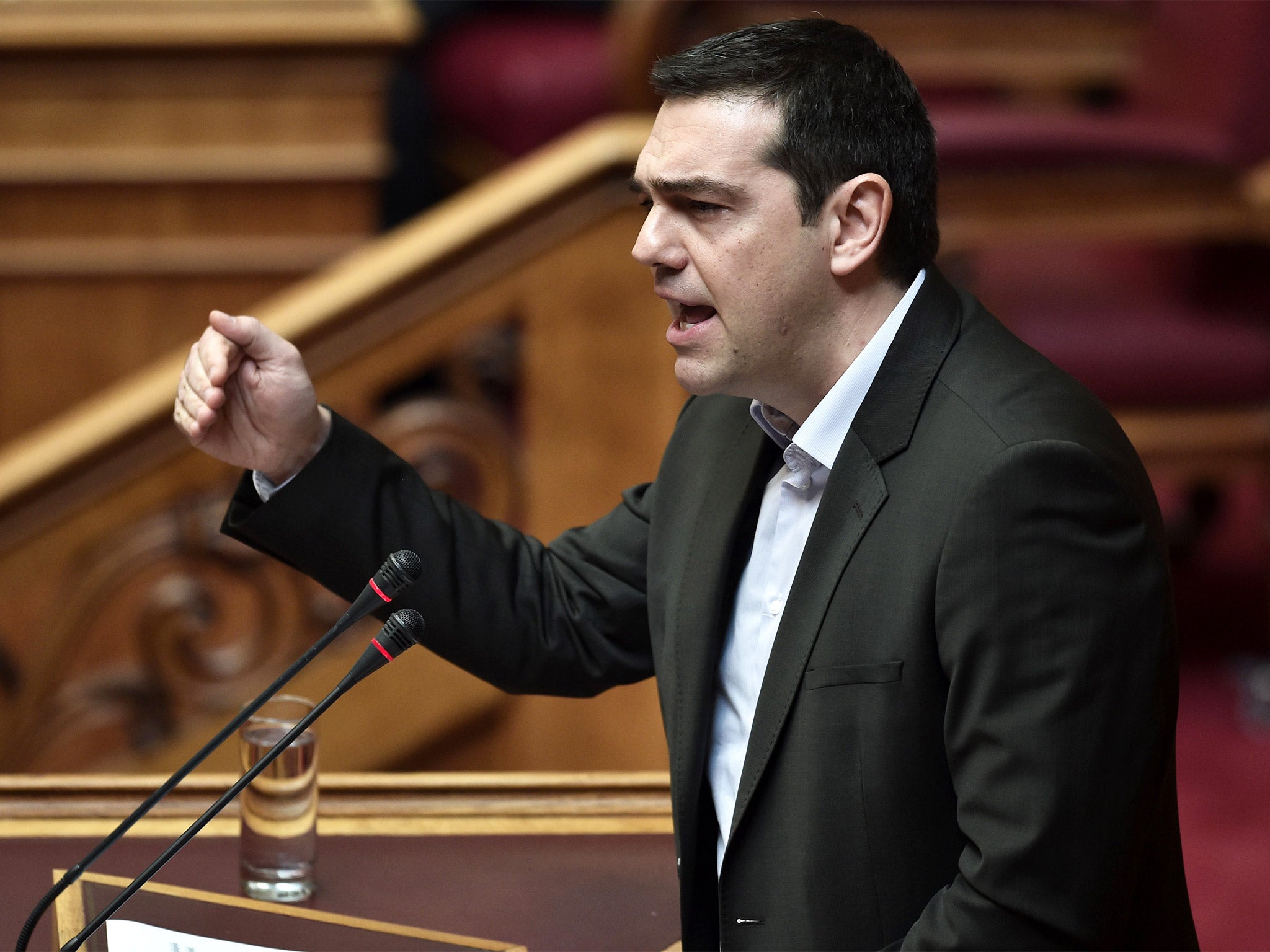Greek bailout crisis: Greece and IMF trade insults over lack of progress ahead of €350m repayment deadline
Greek PM Alexis Tspiras attacks 'EU technocrats' as talks stall and country is labelled 'most unhelpful' by officials

Your support helps us to tell the story
From reproductive rights to climate change to Big Tech, The Independent is on the ground when the story is developing. Whether it's investigating the financials of Elon Musk's pro-Trump PAC or producing our latest documentary, 'The A Word', which shines a light on the American women fighting for reproductive rights, we know how important it is to parse out the facts from the messaging.
At such a critical moment in US history, we need reporters on the ground. Your donation allows us to keep sending journalists to speak to both sides of the story.
The Independent is trusted by Americans across the entire political spectrum. And unlike many other quality news outlets, we choose not to lock Americans out of our reporting and analysis with paywalls. We believe quality journalism should be available to everyone, paid for by those who can afford it.
Your support makes all the difference.Greece’s Prime Minister has forced high-level talks about his country’s deteriorating finances onto the agenda as European Union leaders meet in Brussels on Thursday, with diplomats warning that it could be a matter of weeks before the country runs out of money.
Greece and its 17 eurozone partners reached a tentative deal on 20 February to extend its bailout programme by four months pending more talks, but there has been little progress on the details, and the mood between Athens and its creditors has become increasingly ill-tempered.
Officials at the International Monetary Fund (IMF) have labelled Greece the most unhelpful country they have dealt with, Bloomberg reported, while Greek PM Alexis Tsipras launched another salvo against “EU technocrats” meddling.
“Let them keep their threats for where they work, not for this government and, more importantly, not for this people”, Mr Tsipras told the Greek parliament.
Frustration over such exchanges and the lack of any breakthrough prompted the President of the European Commission, Jean-Claude Juncker, to call for all sides “to get a grip on themselves”.
Mr Tsipras is hoping that the summit will provide him with a platform to convince other leaders to allow Greece to access funding it urgently needs to stay afloat. So far, creditor institutions have refused to release funds until a more detailed plan of economic reforms emerges from the tortuous negotiations.
But as the German Finance Minister, Wolfgang Schäuble, cautioned, “time is running out for Greece”. The country faces a deadline of Friday to pay back nearly €350m to the IMF. They also need to refinance €1.65bn in treasury bills.
An EU diplomat warned that “the fiscal position is worsening and it’s pretty urgent that they reach a resolution” as quickly as possible. “What’s important now is that… people really get into the substance of what needs to be done and how one gets through the next few days, which are pretty critical with specific payments needing to be made, then how one gets through the next few weeks,” said the diplomat, adding that it was “inevitable” that the issue would be discussed on the margins of the summit.
The meeting this evening, will include the German Chancellor Angela Merkel, France’s President François Hollande, European Central Bank (ECB) head Mario Draghi, Eurogroup Chairman Jeroen Dijsselbloem and Mr Juncker.
However Mr Tsipras is unlikely to get immediate agreement on new terms from the leaders, who are keen to keep negotiations among eurozone finance ministers.
“This is not a negotiation to be had at a leader level running differently from negotiations at the finance ministers level,” the diplomat said.
Mr Tsipras and his far-left Syriza party came to power in January promising to end the punishing austerity programme which lenders had attached to the nation’s €240bn bailout, and he is now trying to reach a compromise with creditors who insist Greece must stick to its reform programme.
Anti-austerity sentiment is not limited to Greece. In Frankfurt, anger at the ECB’s policies spilled onto the streets, with protesters setting police cars on fire and hurling stones as they gathered outside the new headquarters of the Bank.
About 350 people were arrested and dozens were injured, authorities said. The violence came amid a largely peaceful rally organised by trade unions and leftist organisations which saw thousands attend.
Leading activists also distanced themselves from the violence. Ulrich Wilkens, a left-wing deputy in the regional parliament, told Associated Press that he was “both depressed and horrified by what I experienced.”
Join our commenting forum
Join thought-provoking conversations, follow other Independent readers and see their replies
Comments